Agriculture Projects
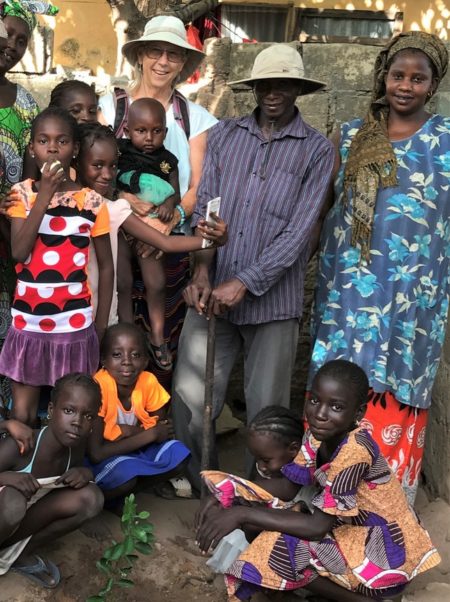
One thing I have learned in the Peace Corps, is the importance of being flexible and willing to take a different path when there were obstacles along the way. Most volunteers are located in a rural village, and will develop projects based on the needs of their community. When we first arrived at our permanent sites after being sworn-in as official volunteers in December 2017, our assignment was to spend the first three months getting to know our community. We were advised to consult with as many different groups as possible, listen to their concerns, and work with them to develop project(s) a PCV could assist them with.
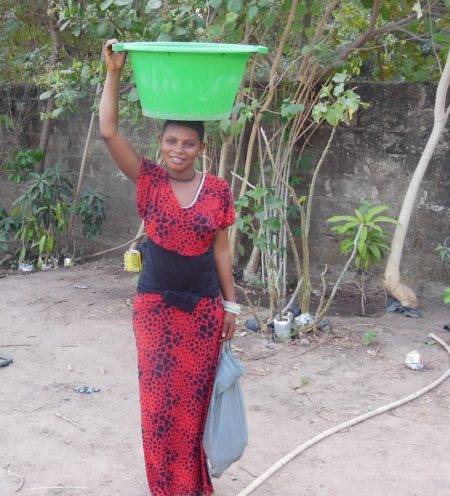
My situation was a bit different, because I was placed in a large city of 46,000 and assigned to work at an agricultural school. I was following a two previous volunteers and was fortunate to work with the same counterpart, Jatta. When I arrived the principal at the school was familiar with how volunteers were collaborators and consultants, not employees of the organization. From January through June of 2018, I was more of a student than a teacher at the school. I learned about gardening in a tropical environment, and had as many failures as successes. I developed relationships with the school staff, students, the local farmers and the women from the community who would come to the school daily to fetch water. It was a slow but steady pace and I was grateful to all the assistance I received from everyone as I learned how to work in The Gambia.
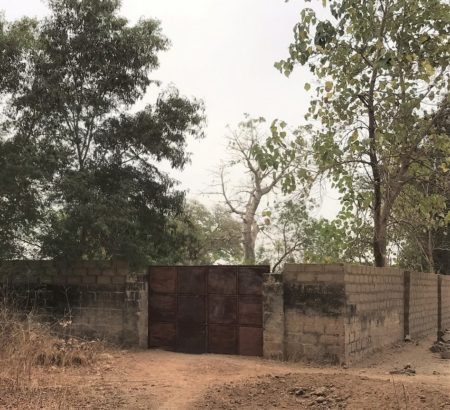
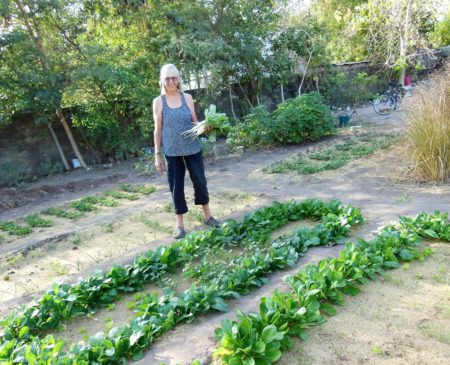
Over the summer months, I worked with my counterpart Jatta to develop lesson plans for the next school year. My lessons would teach the Grade 7 through 12 students about gardening and tree farming. Unfortunately, when school resumed in September there was a new Principal and Agriculture teacher. The new staff hadn’t previously worked with a PCV and didn’t really understand that the Peace Corps approach is to build capacity, but can only be successful if the school staff takes ownership of the project. Many NGOs may come into an area and “give” a community something the NGO thinks the community needs. Our goal is to assist the community in deciding what their needs are, work with them while they create and execute a project, and motivate them to establish a plan to sustain their project into the future. A PCV is only here for a short time, so it’s essential that any project is something a community or organization is committed to.
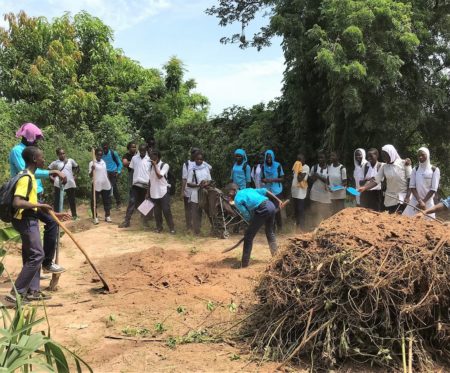
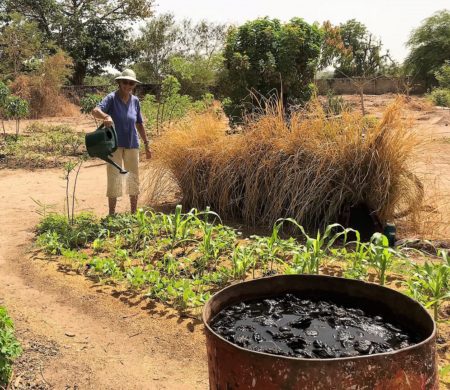
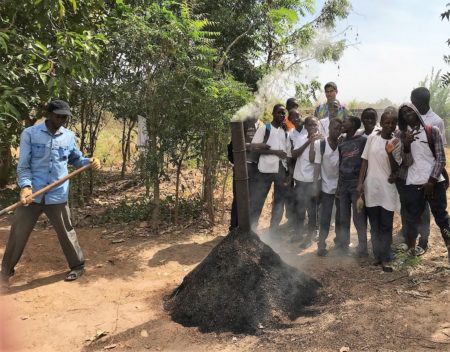
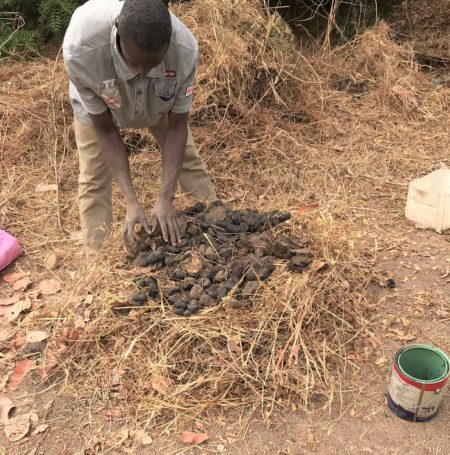
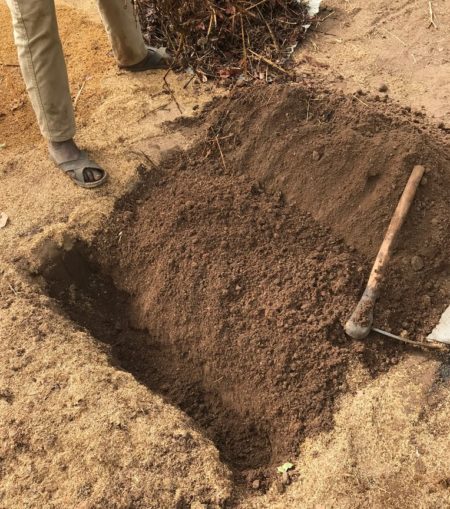
The new school year was a challenge because the Agriculture teacher didn’t have practical agricultural skills, and just wanted to teach in the classroom. It was a struggle to schedule times to work with the students, but I realized it was just another example of how I needed to adjust my approach to deal with the current situation. I frequently reminded the teacher that practical skills would benefit all the students, especially the ones that would be unable to continue a formal education. It was obvious that the students enjoyed their time in the garden, and affectionately called me ‘Auntie Sarjo’. In the fall we pulled weeds and made several compost piles that decomposed fairly quickly in the tropical sun. We made manure tea with water and cow droppings, BioChar from rice hulls to mix into the soil to add carbon and help retain water.They learned about the benefits of double digging the soil and creating a permagarden by adding nutrients to the subsoil. We spent many after school hours together creating healthy gardens with productive results.
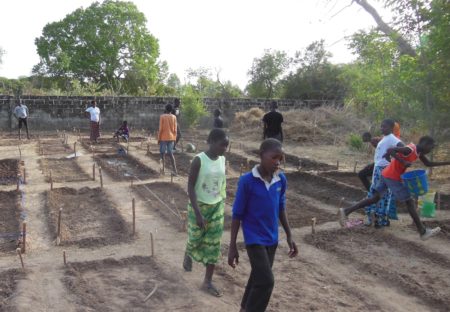
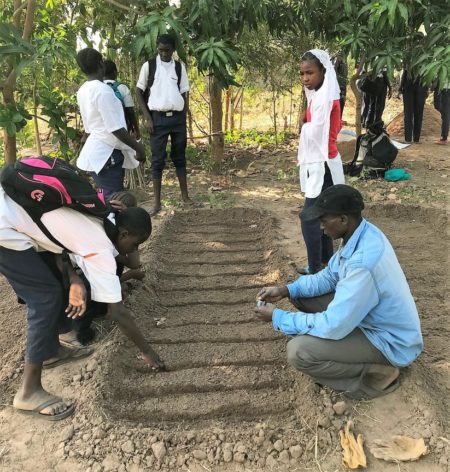
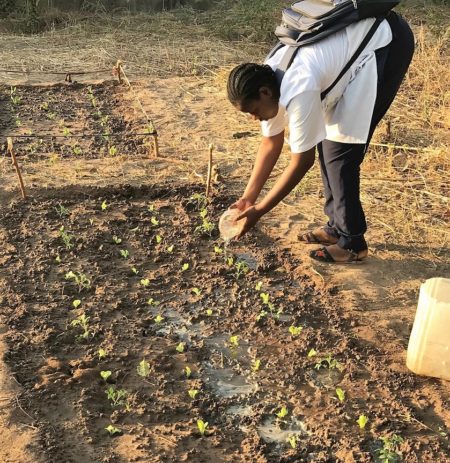
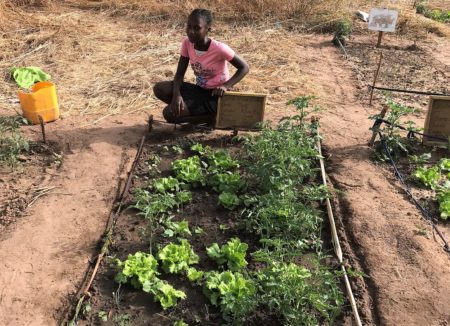
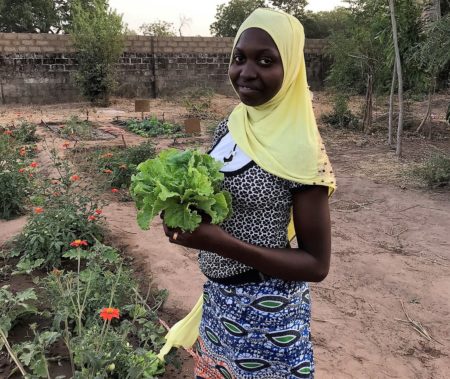
Although it was at times very frustrating to work with some of the school staff, I really enjoyed working with the students. They started vegetables from seed, then carefully transplanted the seedlings into their prepared beds, used buckets to water the plants, and weeded regularly until it was time to harvest. I was particularly impressed with the dedication of the girls to the tasks of watering and weeding everyday. I did have to remind the girls not to water the boys beds, because the boys needed to do their own work. It was not easy for the girls to watch the boys plants die from lack of water, but I explained that failure was a method of learning also. The students that were diligent in caring for the garden beds were rewarded with food for their families meals. Culturally it is the village women who are the gardeners, growing the vegetable for the food bowls, while the men grow the cash crops of groundnuts (peanuts), rice, maize or millet. The main vegetable gardening season is during the cooler months of November through February, and rainy season is when the cash crops are grown from July through October.
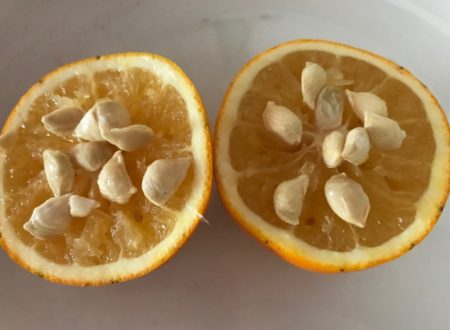
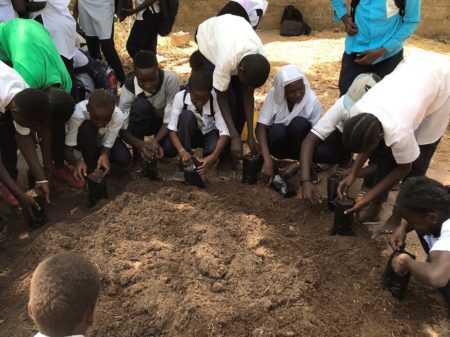
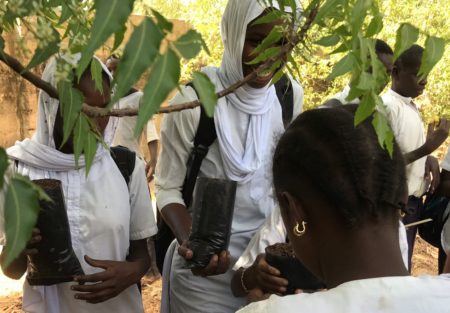
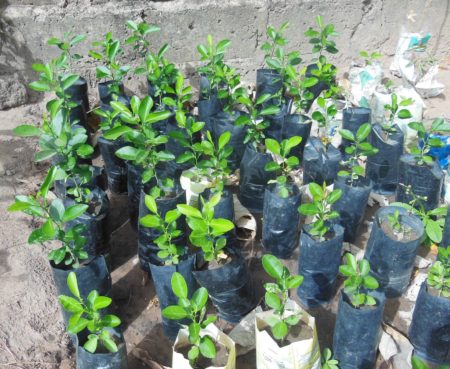
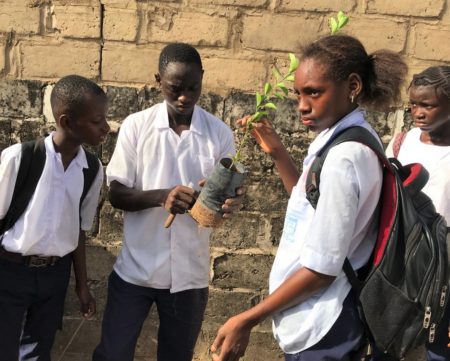
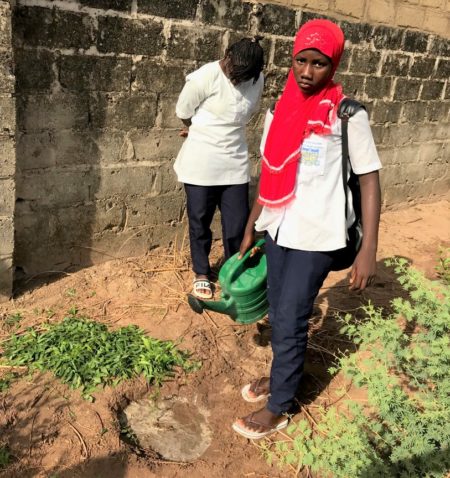
The Gambia has been severely deforested in recent decades for a number of reasons. Most villagers still cook with wood or charcoal, wandering livestock will eat tree seedlings, and there is a problem with illegal harvesting of trees for sale. It is easy to cut trees for immediate use, but planting replacement trees takes considerable more effort, and many agricultural PCVs have tree nurseries and encourage their communities to plant trees. Being able to incorporate tree planting into my curriculum, was one way I could help address the deforestation problem. The students planted lime trees in the walled school garden at the end of the school year, which was at the beginning of the rainy season, before their school term was over until the fall.
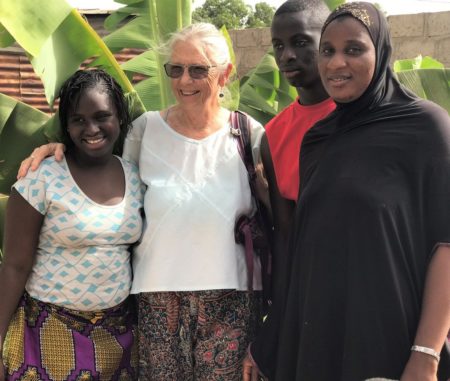
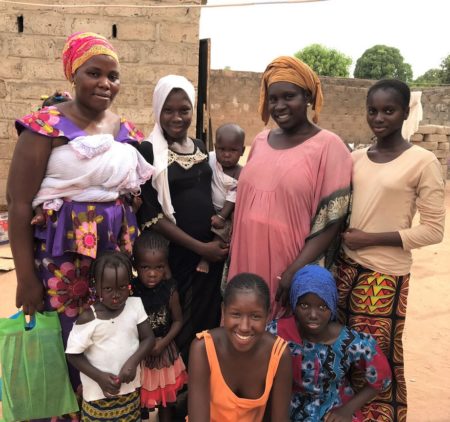
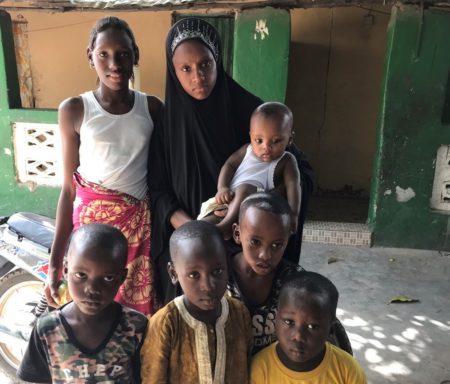
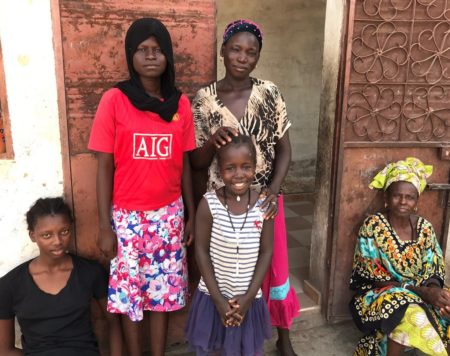
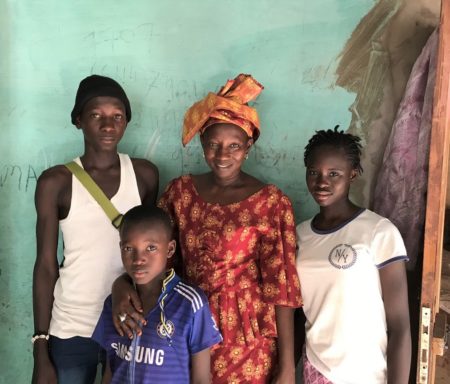
For our final project the students planted fruit tree seedling in their family compounds. If the whole family was committed to caring for the seedlings, there would be a greater chance of survival. With my counterpart Jatta we visited about 25 family compounds. We discussed what type of tree would grow best, how to protect the seedling from predators, caring for the seedling as it matured, and benefits such as shade, adding oxygen to the air, greater food security or potential income. Meeting so many wonderful families was one of the highlights of my service.
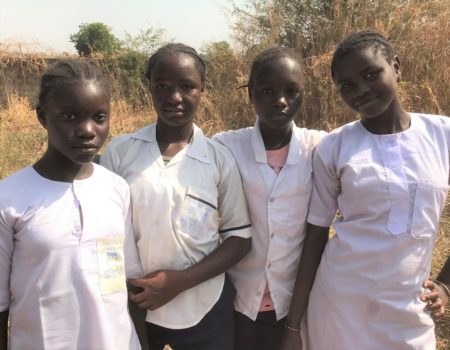
I had originally expected that all of my work would be on the school campus, but it turned out that working off campus was the best option for success. After checking with the students in the fall, it was gratifying to find that about 80% of the trees survived the first rainy season. My project goal was more trees for The Gambia, and it was a highlight of my PCV service to work with these students, one tree at a time.
3 thoughts on “Agriculture Projects”
Congratulations Susan with the success of the trees!
Your work with the children and families is so meaningful to them and you, what a huge accomplishment this has been!
It’s been wonderful following you Susan. You have touched many lives while in The Gambia and it looks like you’ve been touched by many as well. Your adventures have been most impressive! I hope our paths cross again when you return to Oregon.
Thank you once again, for sharing your unique journey with us. Observing people from a totally different culture through your eyes has given us insights that awaken our curiosity, and make us want to know more about the other people who share our planet. Thank you for representing us.
Comments are closed.